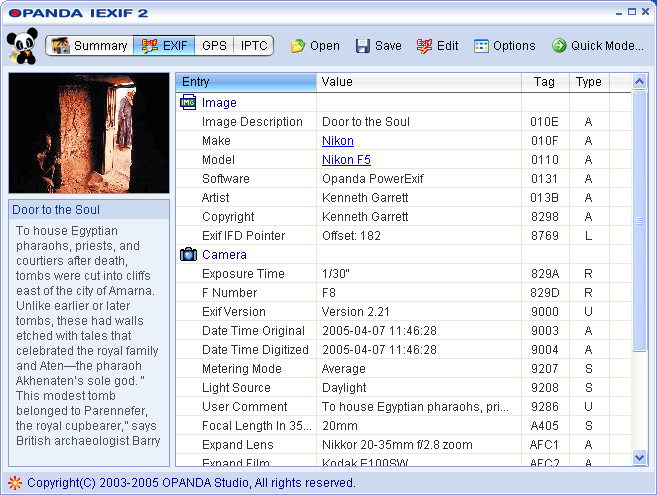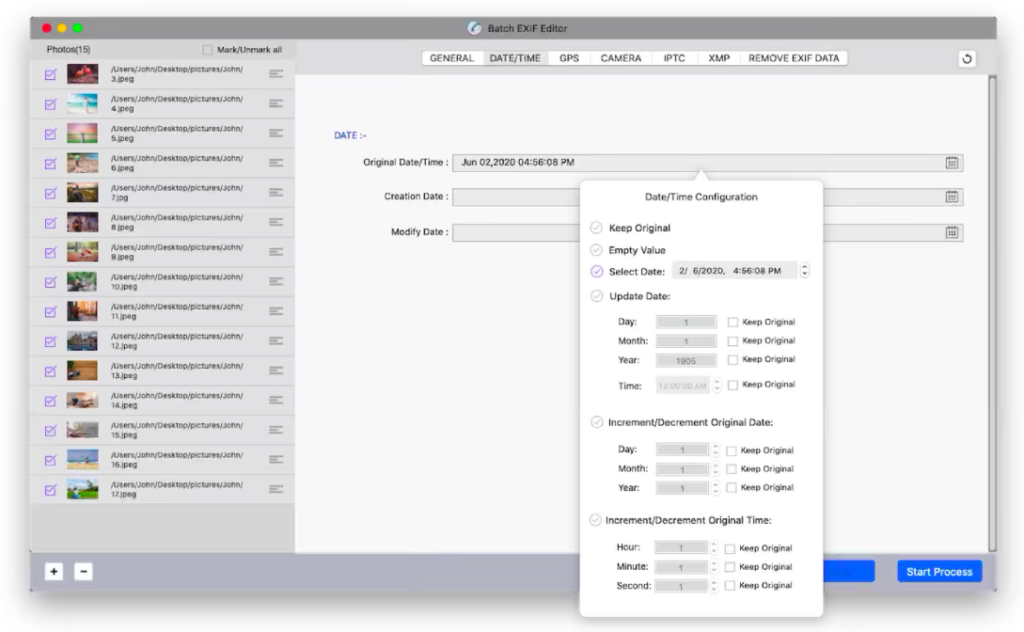

to make your experience better and to keep people safe.” However, a Facebook representative said via email that Facebook does collect and process Exif data, including “information like the make and model of the device used to take the photo, the camera settings, and the date the photo was taken. Representatives from companies Consumer Reports spoke to-including Apple, Google, Imgur, and Facebook, which owns Instagram and WhatsApp-said that Exif data is not used to target you with advertising messages.

“You can almost certainly be assured they are not throwing it away, given that they’re basically big data vacuum cleaners,” Farid says. That doesn’t mean social media companies don’t find any use for it, however. If you upload pictures to Craigslist, Facebook, Imgur, Instagram, Twitter, or WhatsApp, the Exif data won’t be available to the people who see them. Many other sites that let you display photos to friends or the public remove the Exif data before the images are shown to others. The service also has a setting that will strip out location data automatically when photos are uploaded.
#Exif data viewer gps download
Flickr preserves Exif data by default, but users can change their account settings to control whether Exif data is available when others download their photos. If you post photos online, the details vary by site. Both services have a feature that lets you share photos without that information attached. That allows you to search for photos later by date and location. When you store your photos in Google Photos or Apple Photos, the Exif data is preserved.

“When I met that person, I kind of educated them, saying, ‘Hey, maybe it’s a privacy concern for you,’ so they can make better decisions moving forward.” “I’m like, ‘I now know where you live, but I don’t really want to know where you live,’” Rajewski says. That matters to individuals-from college students to anyone selling things online-who communicate with people they don’t know well on the internet.Įxif data “can be a gold mine of information” that people don’t realize they’re sharing, says Jonathan Rajewski, a digital forensics expert and vice president at cybersecurity firm Stroz Friedberg, an Aon Company.Ī seller from Craigslist once emailed Rajewski photos of an item he was thinking of buying-with the Exif data still attached. If you email or text a photo, the Exif data will typically travel with it.

“If you’re sharing images with people you don’t know or trust, you should be wary of whether or not you’re revealing sensitive information, like location data.” “There are some situations where you need to be careful,” says Bobby Richter, the leader of privacy and security testing at Consumer Reports. One thing we don’t know is whether he realized how much personal information he was posting online. For instance, the photographer shot with an iPhone X and had left the camera settings on auto. He was on a dirt baseball diamond behind a church in a small town in Ohio-a location we won’t name. Call up some GPS data, and you can learn where the boy was playing. As the shutter clicked, the time was 7:15 p.m. We can see that the picture is about a year and a half old the boy’s game took place on June 6, 2018. But download the file and click through some menus, and you can learn a lot. There is no caption, and few visual cues as to where or when the picture was captured. He is partly in shadow, but his face is outlined in sharp silhouette against the sky. The boy stands at home plate in his Little League uniform, bat poised above his shoulder. There’s a particularly arresting black-and-white image of a boy on Flickr, the photo-sharing site.


 0 kommentar(er)
0 kommentar(er)
